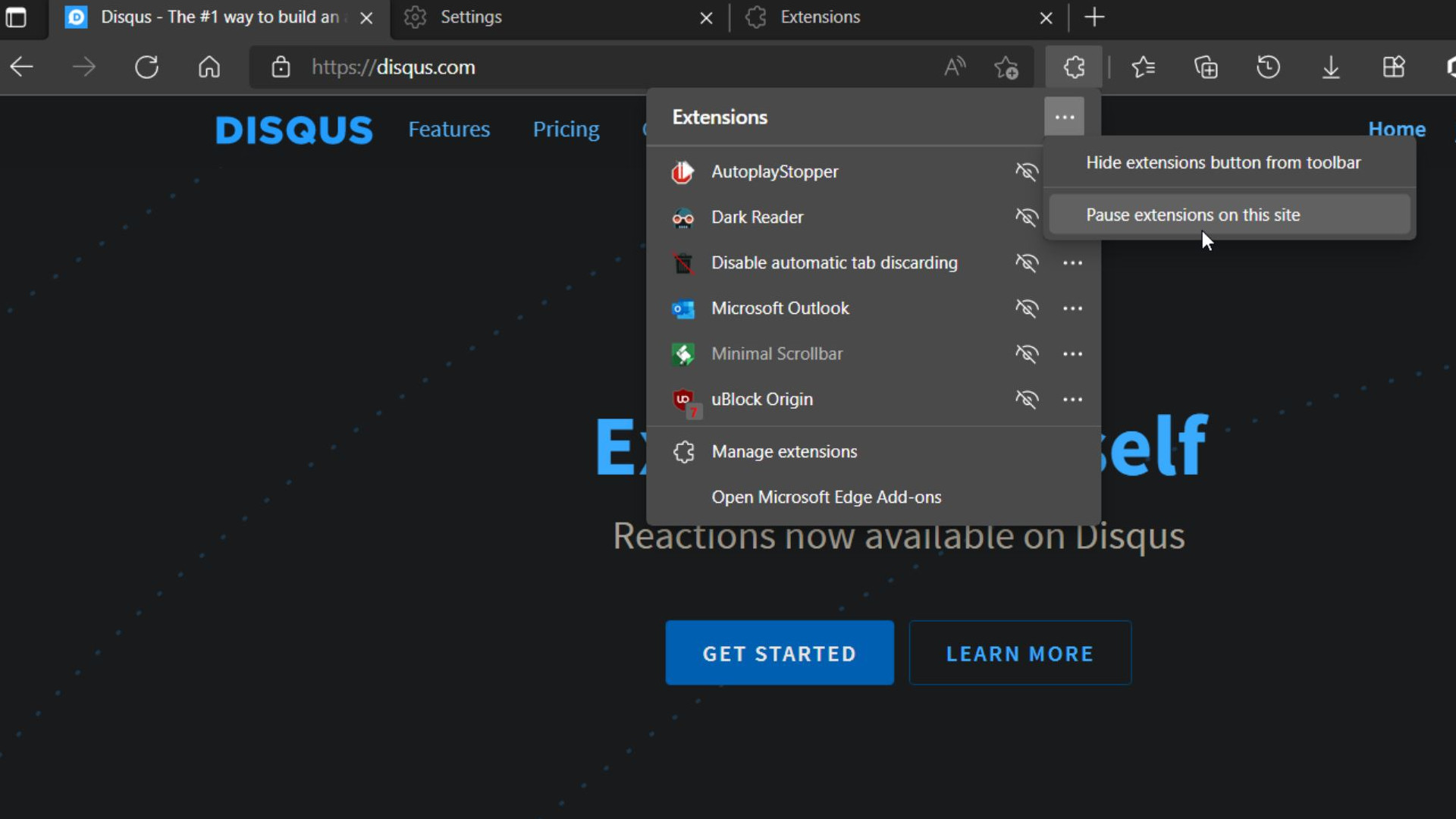
Microsoft is testing a new feature for its Edge web browser that will allow you to pause all extensions from running on specific websites with a single click, allowing users to have greater control over extensions running on risky or sensitive websites.
Usually, browsers like Microsoft Edge and Google Chrome can't automatically run extensions in Incognito mode because of privacy restrictions, as extensions often require access to website data which could be an issue if users accidentally (or sometimes willfully) install harmful, invasive extensions.
As reported by Windows Latest, this new feature will bring Edge more in line with what rival browser Chrome can provide, though there are some notable differences. The update was spotted by reddit user u/Leopeva64-2 who provided screenshots of the new feature being tested in the Edge Canary channel.
Firstly, the feature being tested on Edge will pause all extensions on a specific website rather than individual selections, which you can already toggle on/off.
Google Chrome on the other hand, allows you to select a specific extension from running on websites for better optimization - for example, if you wanted to disable a price comparison tool that takes up too much space, but allow an ad blocker.
Chrome doesn't yet have the ability to block all extensions on sensitive websites, so to replicate this you would have to manually select all of your downloaded extensions and pause them from running on selective domains.
The extension block is also only temporary on Edge right now, and a banner will appear that reads “We’ve paused extensions on this site to keep your data sharing minimal”. It's not clear how long this temporary pause is for.
Sign up for breaking news, reviews, opinion, top tech deals, and more.
We would assume that if this feature is pushed live outside of the Edge Canary beta testing channel, we will see future optimizations that will allow individual extensions to be paused on specific websites. For now, there's no word on when the general public can expect this feature to roll out on the public build of Edge.
It's clear that Microsoft is getting serious about trying to spin Edge into a formidable rival to Chrome, but with Google's browser still dominating with almost 65% of the market share in March 2022 (according to Statista), the underdog still has a very long way to go before it can top the list of the best web browsers.
Analysis: Extensions need real blacklists
Browser extensions can be both a blessing and a nuisance. They can help to optimize your time spent online, from finding better deals via price comparison tools, to blocking annoying pop-ups, but the results can vary depending on the sites you visit.
It can be frustrating if the adblocker you use also results in content you'd actually want to view being inaccessible because the extensions mistook it for something malicious, or otherwise useful tools used for online shopping suddenly block content on your favorite sites.
Pausing individual extensions is certainly a flex that Chrome can hold above Edge for now, but actually blacklisting specific websites from extensions is a messy and convoluted situation/ In some cases, simply pausing them from running will work just fine, but while Chrome notably allows you to whitelist certain websites so the extension of your choosing will only run on them, it doesn't have a natively supported blacklisting feature outside of pausing.
Many extensions have their own individual permissions that can be altered, but having additional universal freedom would allow for even greater control for users. The issue here, of course, is privacy protection, which will likely prevent us from seeing this kind of power being placed with the folks using browsers for some time, if ever.

Jess is a former TechRadar Computing writer, where she covered all aspects of Mac and PC hardware, including PC gaming and peripherals. She has been interviewed as an industry expert for the BBC, and while her educational background was in prosthetics and model-making, her true love is in tech and she has built numerous desktop computers over the last 10 years for gaming and content creation. Jess is now a journalist at The Verge.